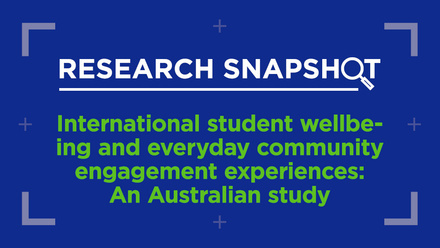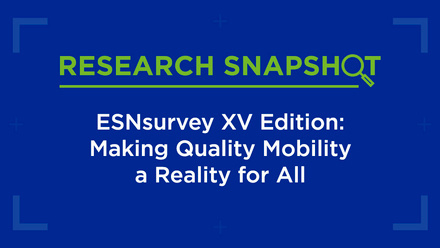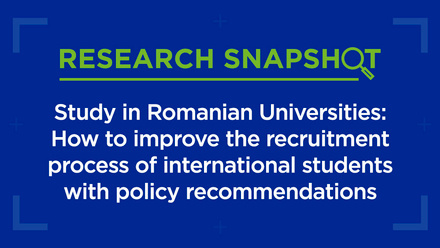Are you strategising your scholarships?

Does your institution have a clear and well defined scholarship strategy? The very nature of scholarships – making funds available to enable deserving people to study – is in itself a laudable activity. But given a strategy and plenty of thought, much more can be achieved. In this blog post, the World Citizen Talent Scholarship provided by The Hague University of Applied Sciences (THUAS) is discussed – its ambitions and goals, how candidates are selected, and how it can help enhance the global reputation of a university.
Based in The Hague, the seat of the Dutch government and home to a large number of international courts of justice and other legal organisations – hence its epithet of ‘City of Peace and Justice’ – The Hague University of Applied Sciences (THUAS) has a strong focus on international diversity and relevance to the labour market. THUAS educates its students to be world citizens: professionals who are capable of practising their profession from an international and multicultural perspective.
The World Citizen Talent Scholarship, introduced by the university in 2013, is intended for applicants who see the world as their oyster and can make a significant contribution to the international classroom. Only students from outside the European Economic Area who are new to the university are eligible. The 63 annual scholarships (54 bachelors and 9 masters), each amounting to €5000, are paid into the students’ bank accounts in their first year of study only.
The fact that the scholarship is not deducted from the tuition fees is significant; it is a recognition of their talent. The principle remains that in the three or four years Bachelor students typically spend at THUAS, they have to be able to support themselves. The scholarship should not be the factor deciding whether or not to enrol at the university. In every other way, recipients also have to meet the same requirements as other students.
Scholarships as a form of international recruitment
The achievement of professional success in the world today is contingent upon the ability to compete in the international labour market, to work for internationally-oriented organisations, to develop specific international expertise in each graduates’ discipline and to learn skills that will enable graduates to collaborate with persons with different cultural and professional backgrounds. While graduates may choose to stay in the Netherlands to work, or choose to work anywhere else in the world, the hope is that they become and remain ambassadors for THUAS, The Hague and the Netherlands for years to come.
For THUAS, the scholarship is first and foremost a recruitment tool, a way to attract talented students who see themselves as world citizens and who will enhance the university’s profile as an ‘educational united nations’. The university selects candidates who think beyond borders and who are eager to make a difference in the world.
The most important factor in judging whether applicants are worthy of a scholarship is the essay of between 950 and 1100 words they are required to submit. In it, they describe their cultural background and the contribution they want to make, as global citizens, to the THUAS. Although candidates receive guidelines describing what their essay should be about, the texts submitted are surprisingly varied and wide-ranging. Some essays illustrate their points with quotes from Thoreau, Confucius and Martin Luther King. Some are creatively written, even poetic, while others are factual and down to earth. In some, applicants describe their experiences with foreign cultures, while others discuss different aspects of their own. Statements like: "I am meant to live and study in The Hague" and "The only real equality is the equality of the intellect" are bold, to say the least. Quite often, essays dwell on the applicant’s family history and his or her wish to give relatives something to be proud of.
Belief in unity
In some of the most moving essays, international politics comes into play. A participant from Korea, a divided country, devotes most of his text to his yearning for unity and his belief in its power. In The Hague too, he says, he will be looking for the power of unity. The world of politics and violence also draws close in the contribution of an Egyptian student who was just 15 when the Arab Spring erupted all around him. He echoes the Korean’s belief in unity in troubled times: "We are a people that can fight a million fights and still stand up for more." Describing himself as "an optimistic sceptic", he promises to bring to THUAS "a fire that can lead a whole pack, a smile that can encourage people to do more". Finally, a South African student eloquently relates his personal history; it’s the story of a young person refusing to be victimised. He grew up in Cyprus and describes how, at the age of 20, the Cypriot authorities tried a deport him – a fate he managed to avert after a five-year legal battle. His motivation to study in The Hague was so strong that he says he would have done so anyway, even without the scholarship.
Despite the differences, all the awarded essays show a desire to share their own culture, learn from other ones, pick up ideas, and open doors. There can be little doubt that the authors truly believe in global cultural diversity. They are eager to create an impact, connect with others, and contribute to a better world.
Evaluation and improvements
The World Citizen Talent Scholarship is the first scholarship awarded by the university itself. As a result, the learning curve has been steep. After a thorough evaluation of the first edition, the procedure has been fine-tuned and a more critical approach has been adopted. In the second year, a total of 45 recipients from 21 countries, including seven Master’s students, started programmes in The Hague. (The previous year, 39 students from 14 countries had been enrolled.) Being more selective and managing expectations better has resulted in a better match of university and students, more than half of whom opt for law and business programmes.
The scholarship fits in with THUAS’ internationalisation strategy of offering a stable and stimulating educational, professional and research environment, set in the midst of society by attracting a highly diverse and motivated student population. Worldwide promotion of the scholarship will help build awareness and give the university more visibility in the markets it wants to address. The initial results suggest that its targeting of socially conscious, talented world citizens is working.






